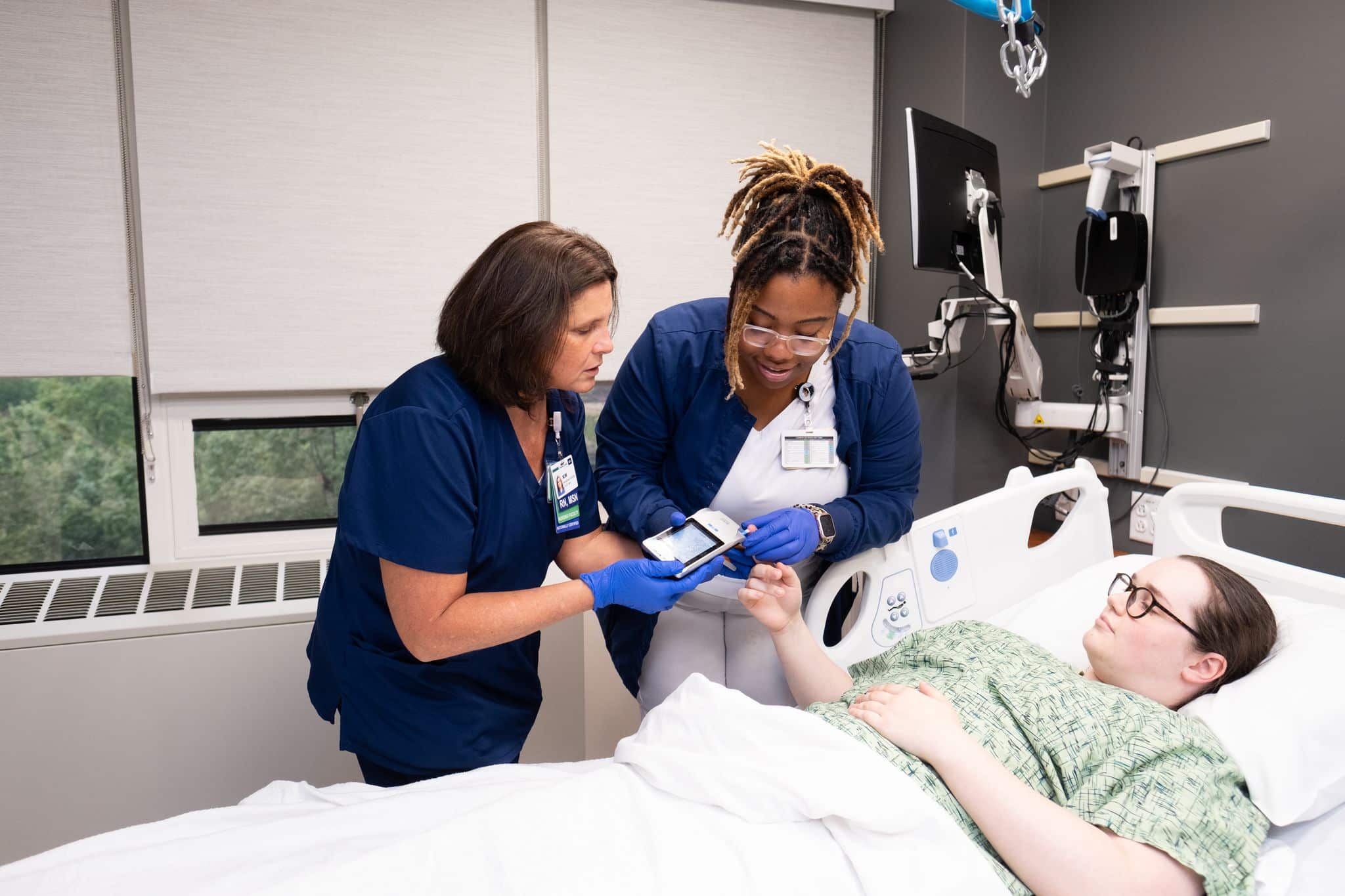Mastering NCLEX Exam Prep: Tips for Success

Are you gearing up to tackle the NCLEX exam? Congratulations on reaching this pivotal moment in your nursing journey! As you prepare to take on this comprehensive test, it’s natural to feel a mix of excitement and nerves. But fear not – with the right strategies and mindset, you can conquer the NCLEX and pave the way for a rewarding career in nursing. In this blog post, Baptist Health College School of Nursing Retention Specialist, Dr. Katherine Crow, DNP, RN, CNE, will explore key tips and techniques to help you master your NCLEX exam prep and approach test day with confidence.
1. Understand the Exam Format:
First things first, familiarize yourself with the format of the NCLEX exam. Knowing what to expect can help alleviate anxiety and ensure you’re prepared for the task ahead. The NCLEX is a computer-adaptive test (CAT), meaning the difficulty of the questions adjusts based on your performance. It covers a wide range of topics related to nursing practice including pharmacology, physiology and patient care.
“Success on the NCLEX is not just about knowing the material; it’s about understanding the test itself. Remember, the NCLEX test plan is your roadmap to success. Each category, from Safe and Effective Care, to Psychosocial Integrity, represents a crucial aspect of nursing practice. By referring to the NCLEX test plan, you’re not just studying content; you’re preparing strategically,” Crow says. “Focus on mastering each of the four client needs categories, but don’t overlook the smaller content areas like Reduction of Risk Potential and Basic Care and Comfort. In the end, all of the categories are important.”
2. Develop a Study Plan:
Effective NCLEX preparation requires a structured study plan tailored to your individual needs. Start by assessing your strengths and weaknesses in various content areas. Allocate dedicated study time each day and create a schedule that allows for regular breaks to prevent burnout. Utilize study resources such as review books, online practice questions and study groups to reinforce your understanding of key concepts.
Crow suggests: “Crafting a study plan for the NCLEX begins with understanding your strengths and weaknesses. Dive into the NCLEX subscales and pinpoint where improvement is needed. Reflect on past ATI proctored exams and identify recurring low subscales, these are your targets for growth. Utilize other resources as well like ATI BoardVitals to create focused assessments aligned with NCLEX subscales.”
3. Practice, Practice, Practice:
They say practice makes perfect, and this certainly holds true for NCLEX exam prep. Set aside ample time to work through practice questions and simulated exams. Focus on mastering the application of nursing principles to clinical scenarios, as this is a key aspect of the NCLEX. Review rationales for both correct and incorrect answers to deepen your understanding and identify areas for improvement.
“In the final days before the NCLEX, utilize your ATI resources to their fullest potential by crafting a CAT tailored specifically to you. This dynamic exam mirrors the NCLEX’s format and grading, adapting to your performance level. Embrace the challenge: as you answer correctly, face tougher questions; stumble, and the test adjusts,” Crow says. “Also use ATI BoardVitals to customize practice tests, fine-tuning subscales, question numbers and timing to mimic the NCLEX experience.”
4. Prioritize Time Management:
Time management is crucial when taking the NCLEX exam, as you’ll need to answer a large number of questions within a limited time frame. During your practice sessions, practice pacing yourself and making educated guesses when necessary. Remember to budget time for reviewing flagged questions and ensure you’ve answered each one to the best of your ability.
“Efficient time management is a top priority for your NCLEX preparation journey. Every hour dedicated to study is an investment in your success. Prioritize wisely, allocating time for practice, review and self-care. Create yourself a detailed study plan of how you will tackle each day leading up to the exam,” Crow advises.
5. Stay Calm and Confident:
On the day of the exam, it’s natural to experience nerves, but try to stay calm and focused. Start your day with a nutritious breakfast and engage in relaxation techniques such as deep breathing or visualization to ease any anxiety. Trust in your preparation and believe in your abilities – you’ve worked hard to reach this point and you’re ready to succeed!
“Prioritize self-care: ensure a restful night’s sleep; nourish yourself with a balanced breakfast and take deep breaths,” Dr. Crow says. “Trust in your preparation, believe in yourself and conquer the NCLEX with determination. You’ve got this!”
Mastering NCLEX exam prep is a journey that requires dedication, perseverance and strategic planning. By understanding the exam format, developing a tailored study plan, practicing regularly, prioritizing time management and maintaining a positive mindset, you can approach test day with confidence and maximize your chances of success. Remember, passing the NCLEX is not only a milestone in your nursing career, but also a testament to your dedication to providing safe and effective patient care.
To connect with Dr. Crow, email your questions to katherine.crow@baptist-health.org.
